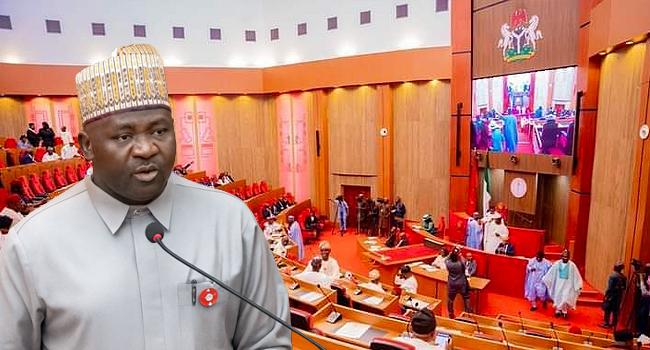Billionaire businessman and entrepreneur, Femi Otedola, has described the implementation of a 15 per cent import tariff by President Bola Tinubu as “bold and decisive”.
A post on his official X handle, Otedola, on Monday said the policy was crucial towards securing and sustaining investments in the downstream sector.
Once implemented, the new policy aims to protect local refineries and stabilise the downstream petroleum market.
However, analysts have cautioned that it may lead to an increase in pump prices for consumers.
READ ALSO: DMO Opens November FGN Savings Bond Subscription
“I commend President Bola Ahmed Tinubu for his bold and decisive step in implementing a 15 per cent import tariff on petrol and diesel.
“This policy represents a crucial move towards safeguarding local industries that have made substantial investments in domestic production and refining capacity.
“For decades, Nigeria’s industrial base has suffered from the unchecked importation of cheaper and often substandard goods, a practice that crippled once-thriving sectors such as textiles, local vehicle assembly, and manufacturing.
“We cannot afford to allow history to repeat itself within the energy sector, particularly now that Nigeria possesses the capacity to meet its petrol and diesel requirements locally.
“This tariff not only protects the billions of dollars already invested in refining infrastructure but also underscores the government’s commitment to driving industrialisation, creating employment, and building a sustainable energy future for our nation.
“This policy will also help establish a stable and sustainable pricing regime, contributing to greater control of inflation and long-term economic stability. President Tinubu’s ability to deploy policy as a catalyst for economic transformation is truly commendable.
“His focus on empowering local producers and promoting value addition within Nigeria exemplifies the type of visionary leadership required to steer our nation towards realising its ambition of becoming a $1 trillion economy.”
I commend President Bola Ahmed Tinubu for his bold and decisive step in implementing a 15 per cent import tariff on petrol and diesel. This policy represents a crucial move towards safeguarding local industries that have made substantial investments in domestic production and…
— Femi Ote$ (@realFemiOtedola) November 3, 2025





